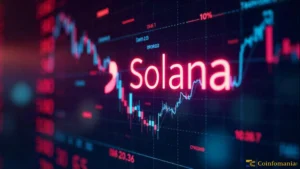Unlocking Sovereignty: How Blockchain Empowers Individuals and Communities

Rethinking Decentralization: The Path to True Sovereignty in blockchain
Understanding the Misconception of Decentralization
Decentralization has become a buzzword in the blockchain realm, often misconstrued as the ultimate goal. However, it should be viewed as a means to an end—sovereignty. This concept emphasizes the importance of individuals and communities having control over their own infrastructure, assets, and data, free from reliance on distant validators or centralized networks that can be compromised or shut down. The essence of blockchain technology lies in empowering users, not merely in achieving decentralization.
The Fragility of Global Networks and the Myth of Trustlessness
While many believe in the resilience of major blockchain networks like Bitcoin and Ethereum, the reality is that these systems may falter in extreme scenarios, such as global conflicts. If individuals cannot operate their own infrastructure or conduct transactions without a global network, they are not truly sovereign. Relying on a singular network, regardless of its decentralization, undermines the very concept of sovereignty.
To achieve genuine sovereignty, networks must be designed to function locally while still having the capacity for global interaction. In a world where connectivity can be disrupted, local economies and communities should maintain their operations independently of global systems.
Building Resilient Networks for True Sovereignty
The digital landscape is inherently vulnerable, as evidenced by hacks, regulatory challenges, and technical failures. To create systems that endure, they must be inherently resilient. Users should have the ability to manage their own infrastructure, ensuring that they can engage with global networks when necessary but are not dependent on them for essential operations.
Privacy is a fundamental aspect of sovereignty; if data is publicly accessible, it cannot be considered owned. Communities should not have to rely on the same validators as others, allowing them to select their own trust models based on their unique needs and circumstances.
Embracing Localized Governance and Currency
Communities around the world are beginning to explore localized currencies, decentralized autonomous organizations (DAOs), and governance structures tailored to their specific requirements. This trend points toward a future characterized by a diverse array of sovereign systems that can interact when beneficial, yet remain independent from a singular global framework. If a global network fails or is compromised, local economies should continue to thrive.
True sovereignty entails having control over one’s own systems, rules, and future. To realize the potential of blockchain technology, the focus must shift from glorifying decentralization to fostering sovereignty. The future lies not in a unified global ledger but in a landscape filled with empowered individuals, communities, and organizations, each capable of shaping their own destinies.
Conclusion: A Call to Action for Sovereignty
As we move forward in the blockchain space, it is crucial to prioritize the development of systems that promote sovereignty over mere decentralization. By doing so, we can create a world where diverse actors have the autonomy to define their own paths, ensuring resilience and independence in the face of challenges. Let’s commit to building for sovereignty, paving the way for a more empowered future.







